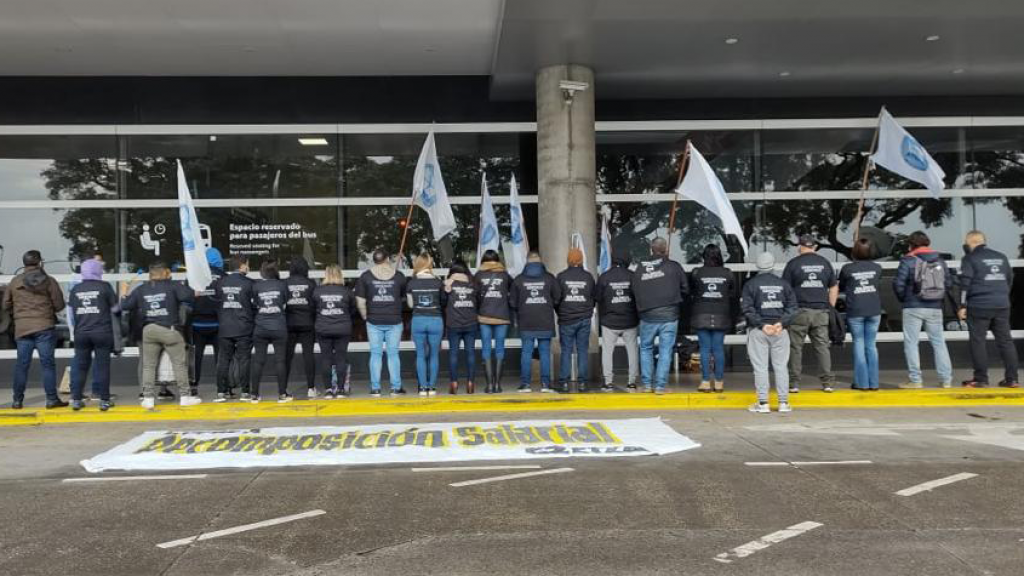A triumph in Argentina for air-traffic workers’ carefully planned action
July 21, 2021

Victory for the air traffic workers’ union in Argentina was down to carefully planned industrial action and widespread international support.
Significant pay rises and better job security for air traffic workers across Argentina have been won by ITF affiliate Asociación Técnicos y Empleados de Protección y Seguridad a la Aeronavegación (ATEPSA). This is despite fierce anti-union opposition from EANA, the state-owned company that runs air-traffic services in the country.
Covid-19 has put severe strain on the aviation industry including EANA as revenues tumbled and flights have been cut. But it is extremely difficult and risky to reduce costs in air traffic control without impinging safety. Meanwhile, analysts are predicting a rate of inflation of more than 50% in the country this year meaning that no pay rise is, in fact, a severe pay cut.
“These workers are responsible for the lives of thousands of people and millions of pesos in merchandise,” said Jonathan Doino, Secretary General of ATEPSA. “They are vital for air safety, yet they were put in a position where they could not afford to feed their families.”
The dispute was brought to a head when EANA fired several workers without due cause or any notice, in a move seen as belligerent to the union. The company cited disciplinary issues from several years ago, in a bid to harass activists.
“It’s common in this type of pressure-cooker situation for workers to react and storm out,” said Gabriel Mocho Rodriguez, ITF’s Civil Aviation and Tourism Services Secretary. “But that’s not wise. If action is too severe, the government can declare it an illegal strike and force people back to work.”
In this case, ATEPSA carefully planned its response, targeting private flights and air cargo rather than commercial airlines. Strikes often lasted only a few hours. There was one 24-hour strike. The approach was highly ethical, so that flights carrying medical and other key supplies were not affected.
“Although this concept may have taken longer than an all-out strike, it made its point very effectively and brought EANA to the negotiating table in a more open frame of mind,” said Mocho. “A clever strategy has won through.”
During 18 days of action, 20 cargo aircraft were delayed, impacting 800 tons of cargo valued at US$ 1 million. On top of that, 1,600 flights were affected in general aviation and 74 domestic commercial flights had to be rescheduled. The union explained EANA’s unreasonable position to the people of Argentina through social media and press campaigns.
“The most powerful is a united workforce and their willingness to drive through and support the plan,” said Doino, “Digital tools allowed us to communicate with each other, even during the worst of the pandemic, so that we could stand together while maintaining the democratic nature of the union.”
The deal hammered out by ATEPSA with EANA sees:
- Reinstatement of the dismissed workers
- Better job security for 600 workers (30% of the workforce) who did not have permanent contracts, and the same for anyone new joining the company
- Back pay and bonuses covering 2020 to make up for the lack of a pay rise in this high-inflation country
- Incremental pay rises during 2021 and into 2022 (amounting to a 45% increase) with a clause to renegotiate in December this year
- A new disciplinary system that means issues must be addressed fairly and immediately
- Agreement to allow union involvement in negotiation of pay and conditions
- Agreement to implement ILO Convention 190, protecting women and others from violence at work
Tags: Argentina, Asociación Técnicos y Empleados de protección y Seguridad a la Aeronavegación, ATEPSA, EANA, industrial action, solidarity, strike
